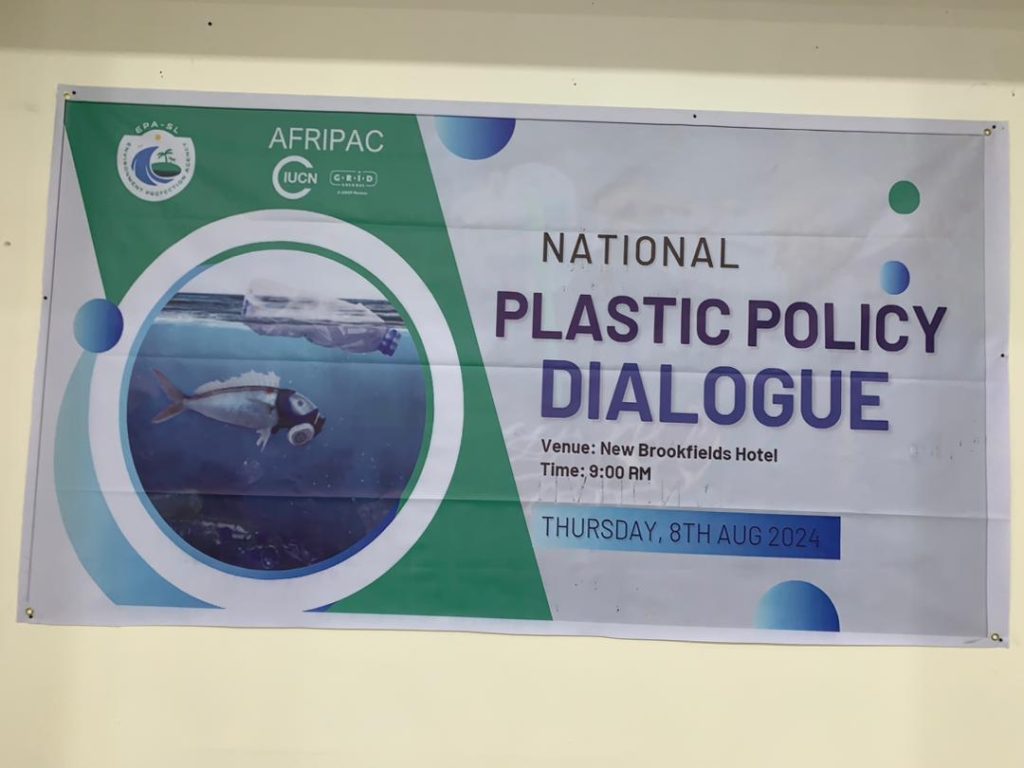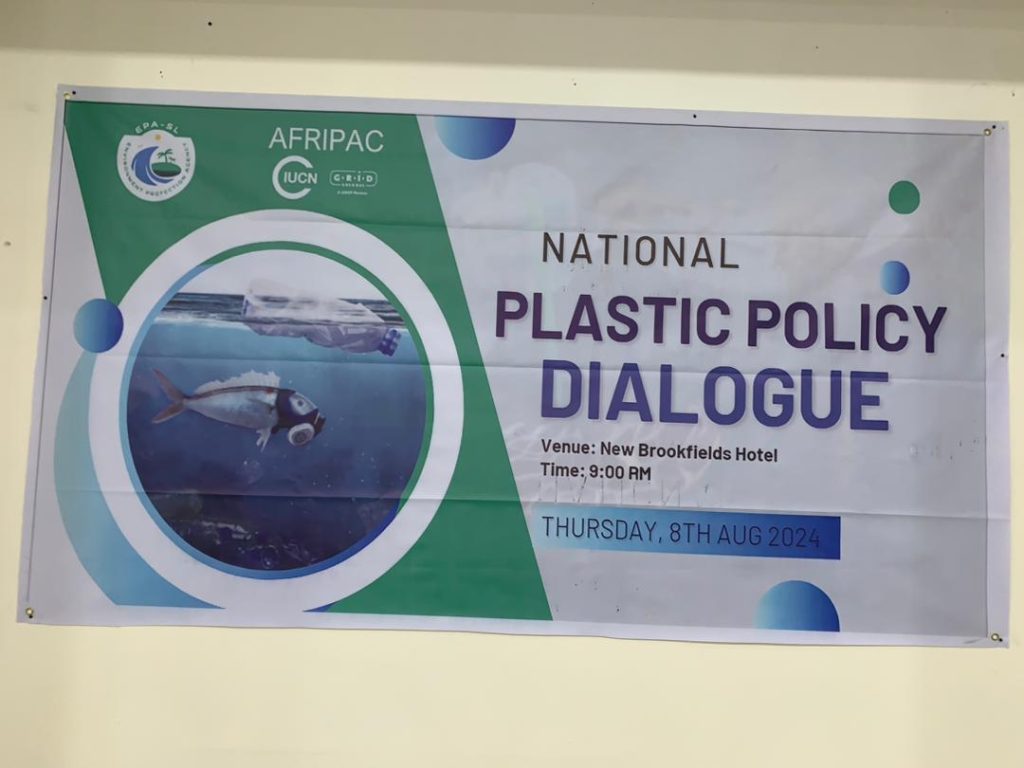In April 2024, representatives from Sierra Leone’s Environment Protection Agency (EPA) participated in the high-level 4th session of the Intergovernmental Negotiating Committee (INC-4) held in Ottawa, Canada. This session is part of the ongoing UN Plastic Treaty Negotiation, which aims to address global plastic pollution, with a particular focus on its impact on marine environments.
With support from the Norwegian Agency for Development Cooperation (NORAD) through the Effective Capacity Building for Global Plastics Treaty in Africa (AFRIPAC) initiative, the Environment Protection Agency hosted a one-day national plastic policy dialogue. The purpose of this event was to identify and assess options that reflect Sierra Leone’s position for the next global negotiation session.
The dialogue, held at the New Brookfields Hotel in Freetown, brought together stakeholders from across the plastic value chain, as well as government regulators, to discuss key aspects of the new draft treaty text.
During the event, Sheku M. Kanneh, Chief Director of the Environment Protection Agency, welcomed participants on behalf of the agency and its Executive Chairman, Dr. Abubaker S. Massaquoi. He provided an overview of the gathering’s significance. The event featured presentations by international partners via online platforms, as well as contributions from the agency’s staff who served as hosts.
Key outcomes from the dialogue included a deeper understanding of the draft treaty’s provisions and robust public support for positions that address Sierra Leone’s concerns. The participants’ views were aligned with the country’s shared interests and national circumstances, strengthening Sierra Leone’s stance for future negotiations at the global level.

]\
During the dialogue, the Chief Director of, the Environmental Protection Agency (EPA), Sheku Mark Kanneh, intimated that the Agency is working closely with the Government to eliminate the usage of plastic in Sierra Leone.
“This engagement is most important that we as stakeholders require for the management of plastic and plastic waste, and we will hang our heads to address the concern of plastic and plastic waste in Sierra Leone,” he stated
He added that there is a need for improving the ecosystem to address the problem of plastic waste, and went on to encourage those providing support, funds and other technical support in eradicating plastic use and plastic waste to keep the fire burning.
“Ladies and gentlemen, I am delighted to be here to talk to you about plastic use and waste. The National Plastic Dialogue we are having at which we welcome you and your statements will be taken into high consideration,” he said, adding, “As we all are. rapidly increasing the level of classic conclusions across the world. Embassies that are present agree to have an inter-governmental ability that will develop a legally binding instrument on plastic and heat pollution reduction.”
He maintained that this year, the Executive Chair of the United Nations program and authorities need to establish the INC, and that the session started with INC One, and that they are currently in the Fourth Session and moving forward to the Fifth Session.
The engagement has so far come along with cooperation from drafters of discussions around countries making their decisions and members participating in the negotiation.
He went further to state that “At the moment, we are at the point where we are preparing for an association and for an engagement in analyzing the documents, to have an instrument that leads to reducing plastic pollution and reduction at the end of the Fifth Session, which is science-implied.” He went further to state that they are also in discussion with other partners.
He noted “First of all, to understand where we stand as a country. we are currently second to discuss how, as a country, we want our position to be placed in a final document and to empower our negotiators to be able to position themselves for a strong position on the IMC File.”
He maintained that the presence of everyone at the gathering is an indication that the team is leading and that the institution is really in a strong position about the steps provided, alongside understanding the national circumstances, so that at the end of the day, all the participants benefit.
